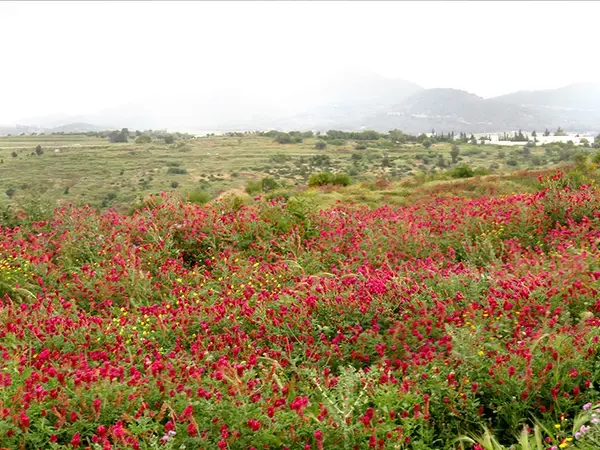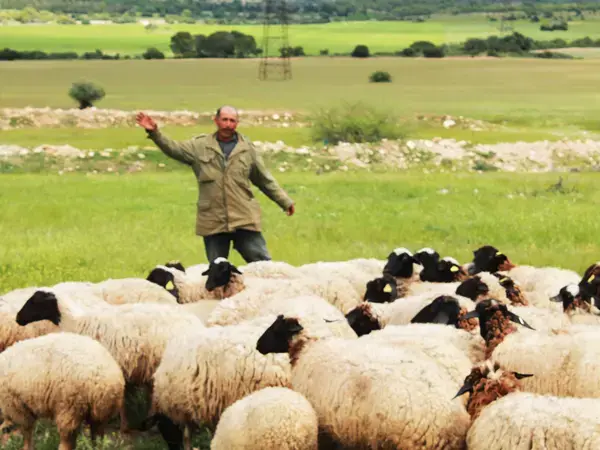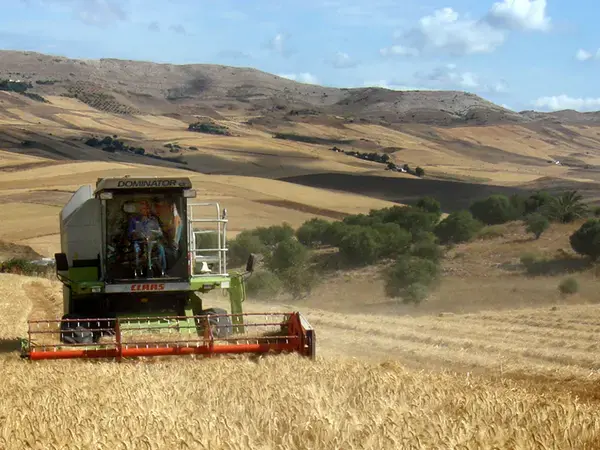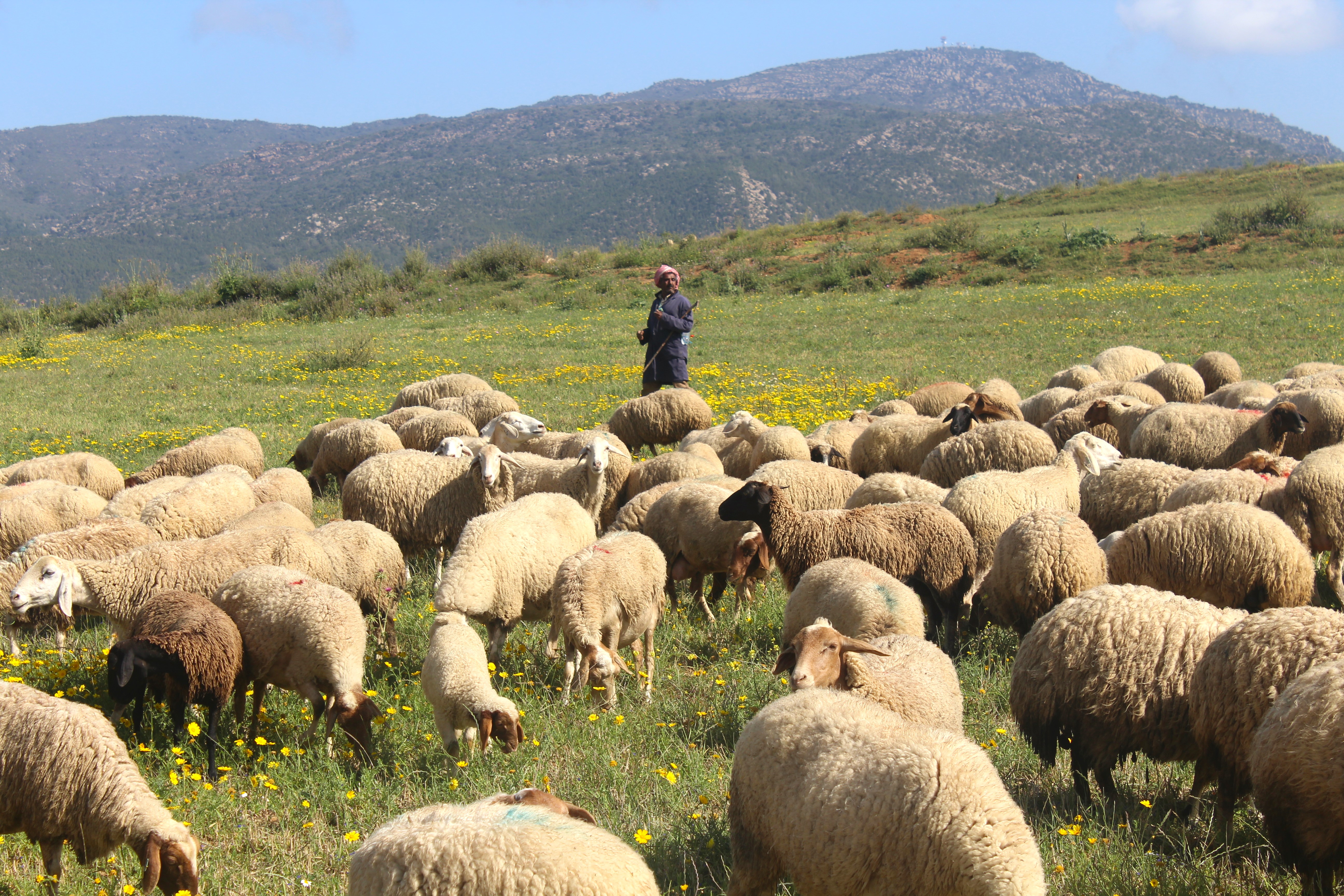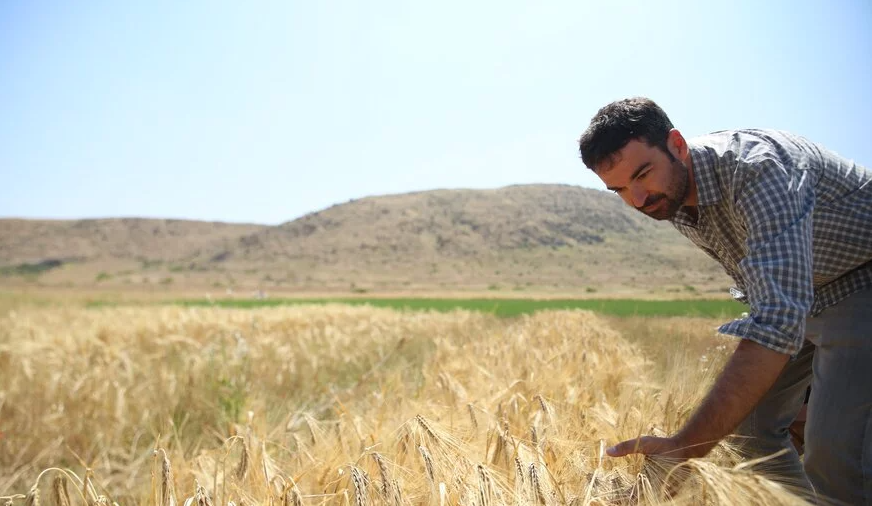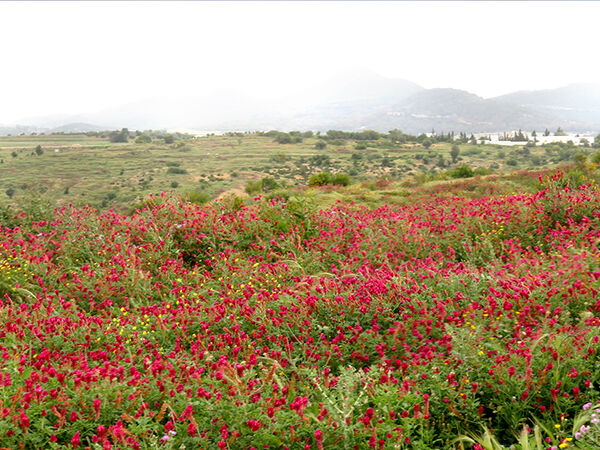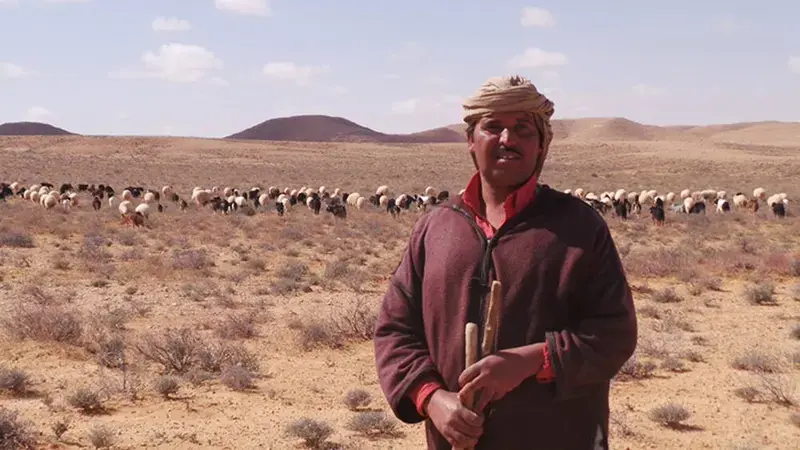
ICARDA Tunisia Country Office established in 1980
Country manager: Aymen Frija
Overview
ICARDA’s work in Tunisia is made possible through the support of our national partners, CGIAR GENDER Platform, CGIAR Research Program on Livestock, International Livestock Research Institute (ILRI), German Federal Ministry of the Environment, Nature Conservation and Nuclear Safety (BMU), Swedish University of Agricultural Sciences, International Fund For Agricultural Development (IFAD), Arab Fund for Economic and Social Development (AFESD), OPEC Fund for International Development (OFID), Food and Agriculture Organization (FAO), European Commission, Partnership for Research and Innovation in the Mediterranean Area (PRIMA), the World Bank, and the International Maize and Wheat Improvement Center (CIMMYT), and Deutsche Gesellschaft für Internationale Zusammenarbeit (GIZ).
ICARDA’s collaboration with Tunisia dates back to 1980. Currently, there are eight ongoing projects in Southern, Central, and South-East Tunisia. In Tunisia, the agricultural sector employs approximately 16% of the country’s workforce, generates up to 6% of the country’s exports earnings, and contributes around 11-13% to GDP. The major crops, in terms of cultivated area, are tree crops (especially olives and dates) followed by cereals. While tree crops are strategic for exports (Tunisia is among the top five world exporters of olive oil and dates), cereals remain very important for human and livestock domestic consumption.
Tunisia is also characterized by low and variable rainfall and limited renewable water resources. It is influenced by the arid and semi-arid climate that covers more than three-quarters of its area. The agricultural sector is also highly dependent on water resources since it consumes more than 75% of total water use in the country. Climate variability has major effects on agricultural production in Tunisia, which results in highly variable yields from year-to-year. Other challenges include the aging farmer population, fragmentation of agricultural land and rapid degradation of natural resources such as soil fertility, etc.
The projects are based on ICARDA’s strategic themes of climate change resilience, sustainable water use, scaling of proven technologies, biodiversity conservation and sustainable value chains.
The technologies promoted through ICARDA projects are wide rangin and include: (smart) irrigation technologies’ effect on yield, adoption of soil and water conservation technologies, restoration of agrosilvopastoral production systems in private and collective lands, opportunistic grazing of rangelands in southern Tunisia, enhancing cereal rotations with legume forages, animal health, soil salinity and agroecology.
Activities
-
Implementation of silvopastoral systems for smallholders, hailed by ICARDA and NARS scientists as a model approach in central Tunisia. The process involves establishing highly nutritional species and planting forage shrubs. Key is managing soil health by addressing erosion through the construction of ditches and soil dams, as well as the planning of rotational grazing management.
-
Capacity development of the local community and knowledge sharing through targeted workshops, field days, and training for more sustainable land management practices; better policies on irrigation technologies’ effect on yield; adoption of soil and water conservation technologies and irrigation technologies; crop-livestock integration; and rangeland management and governance.
-
Supporting national institutions (the National Institute of Agricultural Research of Tunisia (INRAT), Institut National de Recherches en Génie Rural, Eaux et Forêts (INEGREF), Insitut des Régions Arides (IRA) de Medenine, Insitut National des Grandes Cultures (INGC), etc.) to document scalable sustainable soil management solutions using advanced geo-informatics and the framework of the World Overview of Conservation Approaches and Technologies. Web-GiIS functionalities are used to estimate scaling success rate.
-
Research themes related to sustainable land management, appropriate technical packages of wheat and barley, forage production, small machinery for crop-livestock integration, rangelands governance and restoration, and legumes such as chickpea and faba bean, have been undertaken as part of various projects and collaborations.
-
Introgression of gene mutation to improve fecundity in fat-tailed ewes.
-
Capacity development and training on rangeland plant identification and vegetation classification (OEP, ESAM, DGF, BNG, SVCIA, PRODEFIL, GDA).
-
Supporting national partners to perform their fieldwork and data analysis effectively, especially in terms of socioeconomic and agroecological data.
IMPACT
-
Since 2015, capacity development work has involved the training of 2,037 male and 70 female students through short-term group training, and individual advanced degree training.
-
In terms of crop breeding, Tunisia has participated in – and benefitted from – a total of 781 trial lines of chickpea, lentil, faba bean, grass pea, barley, and wheat, which have been provided in the country since 2009.
-
ICARDA has contributed to the release of 41 varieties of seven crops by the Tunisian Government. The crops include barley, chickpea, durum, faba beans, lentil, peas and spring bread wheat.
-
Cactus was largely promoted in Tunisia through many ICARDA projects for which the adoption rate reached 46% of total projects beneficiaries. Ongoing digital intervention for extension services through ICARDA projects reached 624 men (50%) and women farmers (50%) in different areas. Careful consideration was given to the inclusion of youth (about 30% of beneficiaries).
-
More than five types of small machines for forage grinding, forage seed cleaning and pelleting have been designed and/or promoted to more than 60 farmers and farmer associations, with an emphasis on easing effort and costs for women beneficiaries.
-
A new flexible approach for the restoration of degraded rangelands through more flexible (seasonal) resting of rangelands, which is based on actual weather conditions vegetation cycles, has been developed with the potential to impact over 3 million ha.

